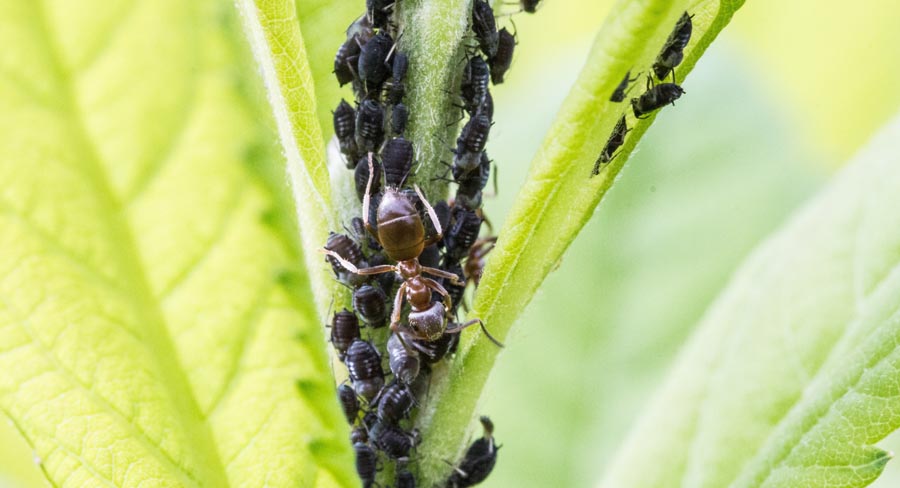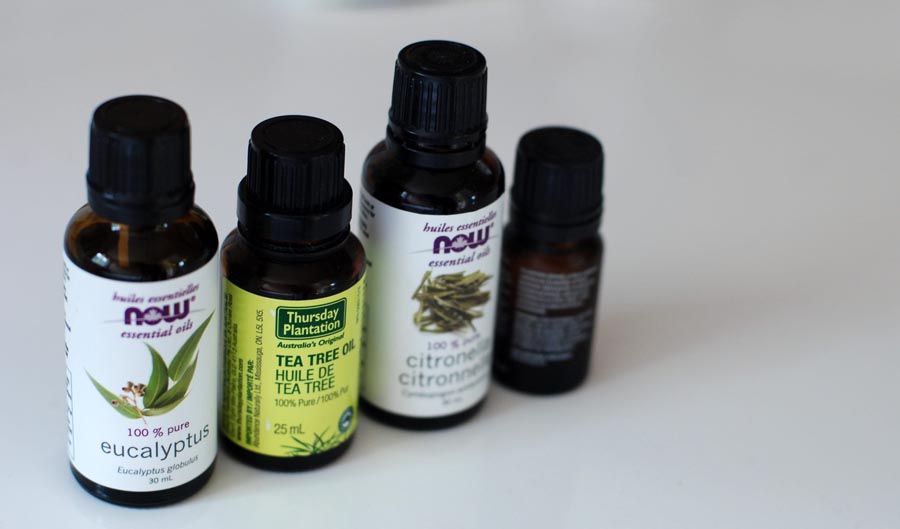
We all know that flowers can be a haven for particular bugs, some more so than others.
One question I have seen posed on more than one occasion is ‘why do hydrangeas attract flies?’
It is a question I have asked myself too, especially when my lacecap attracted literally hundreds of the pests recently.
So why do flies like hydrangeas so much?
Let’s take a closer look.
Why Do Hydrangeas Attract Flies?
Flies are attracted to the smell of particular types of hydrangeas, which encourages them to pollinate the plant. Not all hydrangeas have fertile flowers so not all varieties emit a scent to draw in flies. The varieties that are particularly prone to fly infestations are paniculatas and lacecaps, whereas mopheads remain relatively fly-free in comparison.
Their Fragrance Attracts Them
There is one main reason that flies love hydrangeas.
Their smell.
The blooms of particular types of hydrangeas are magnets for flies that feed on their pollen.
Although they might not be as efficient as bees, flies actually perform 30% of the pollination that occurs in the world.
You might find the problem is more prevalent during the early stages of your hydrangea’s growth, as when they first bloom they produce a huge amount of nectar.
Not all hydrangeas flowers attract the insects equally, with some proving far more tempting to flies than others.
If you have paniculatas and lacecaps, you can expect them to be besieged by flies.
That is because they tend to have pretty colored sepals and a more attractive scent that attracts all kinds of pollinators to the center of the bloom and the fertile flowers.
Mopheads on the other hand have very few fertile flowers, and as such you will not see pollinators frequenting them anywhere near as much.
RELATED ===> Do Hydrangeas Attract Wasps?
They Could Be Aphids

Aphids (pictured above) are tiny soft-bodied insects that frequent particular plants and feed on their sap.
Black aphids could easily be mistaken for flies, so it may be that there are aphids on your hydrangea not flies (or maybe they are alongside them!).
A sure sign that you have aphids on your hydrangea is the presence of ants.
Ants love to feed on the sweet, sticky substance called honeydew that aphids excrete.
In small numbers, aphids are not too much of a problem and can usually be dealt with with a small blast of soapy water but in large numbers aphids can pull sufficient nutrients from hydrangea to cause yellowing and distortion.
How Do You Get Rid Of Flies Around Hydrangeas?
Plan Where You Plant Your Hydrangeas
In truth this solution won’t get rid of the flies, but it will make them less of a problem.
We discussed above how certain types of hydrangea are more attractive to flies than others.
You can turn this to your advantage and plant the hydrangeas that flies like more, such as lacecaps and paniculatas in low-traffic areas in your garden. Then plant the ones that flies don’t visit as much, for instance, mopheads, in high traffic areas.
Or plant dedicated flower beds specifically to attract pollinators.
Either way with some species of flowers you are fighting somewhat of a losing battle if you think you will banish flies altogether, so you can plant them somewhere where their beauty can still be admired, but from afar!
RELATED ===> Do Hydrangeas Attract Hummingbirds?
Use Fly Traps
Placing disposable fly traps around your hydrangeas should see at least some of the flies attracted to them rather than your plant.
There are many sticky traps that are cheap to buy, quick to install and effective.
They will often have a scent, but it is only detectable if you are close by.
The one downside of this method is you will sometimes find they catch other insects such as bees.
Try Using Citronella

Citronella has long been used as an insect repellent with its lemony scent masking the smells that would otherwise attract flies.
Citronella oil, candles or sprays are a way to keep flies away from your hydrangeas.
It is natural and non-toxic, but if you are using a candle it will only keep flies away as long as it is burning, and I am sure you wouldn’t want citronella candles burning 24/7 in your garden.
However, there are some natural homemade bug sprays you can make to keep flies away from your hydrangeas which we have detailed below.
Dislodge White Flies and Aphids With a Spray of Water
We mentioned aphids above, and a similarly sized insect that can cause problems for hydrangeas is the white fly.
Measuring around 1/16th of an inch they live on leaves, especially the underside, where they leave a sticky substance similar to honeydew.
Their presence can have a similar effect to that of aphids and lead to the yellowing of leaves, or even stunted growth and dieback in extreme cases.
Thankfully both aphids and white flies are fairly easy to get rid of.
A strong spray of water from a hose or a spray bottle should do the trick.
Or a simple mix of water and a small amount of detergent should remove many pests.
For larger infestations, you might want to try one of the homemade sprays detailed below.
Homemade Bug Spray for Hydrangeas
Whilst some insecticides maybe be effective in removing pests such as flies, they can also damage flowers and other beneficial creatures on your hydrangeas.
There are a few simple concoctions you can put together at home that will treat the problem without harming your plant.
RELATED ===> Are Earwigs Harmful To Hydrangeas?
#1: The Old Favorite Homemade Insecticide
An oil spray can be created that coats and smothers soft-bodied insects such as white flies and aphids.
It is particularly popular for its effectiveness and the fact most households will have all of the ingredients to hand.
- Mix a cup of vegetable oil with a quarter of a cup of liquid soap – avoid liquid soap that contains a degreaser or bleach.
- Shake well.
- Mix one cup of the oil mixture with four cups of water.
Then apply weekly.
#2: The Oil Mix
Simply fill a spray bottle with water and add:
- A few drops of olive oil
- A few drops of eucalyptus oil or tea tree oil
- A squirt of detergent.
If the problem is bad spray directly onto any insects every two or three days each morning, otherwise spray whenever needed.
If the weather is dry you may want to wash off the spray with some water each week.
#3: The Neem Oil Mix
Neem oil has risen in popularity as a homemade insecticide due to its ability to treat a whole range of problems.
- Mix one or two tablespoons of neem oil with a gallon of water.
- Add one or two tablespoons of dish soap to help the mix adhere to plants.
Begin by spraying weekly, unless the problem is particularly bad then spray every 2 or 3 days.
Neem oil is a good choice as it gets absorbed into the plant’s tissue, rather than sitting on the surface. That means it is much less likely to harm any beneficial insects.
As John Maree, co-owner of OxyPlants, explains: “Neem oil has been used in India for thousands of years and is a trusted method to keep on top of pests, without any of the nasties,” he says. “A spray of Neem oil on the tops and undersides of your plant’s leaves will help remove several pests, including mites, whitefly, aphids, thrip, and mealybugs, at every stage in their life cycle. Using neem oil also helps to get rid of powdery mildew, too.”
Final Thoughts
If you want to know why hydrangeas attract flies, have a look in your garden.
If you have a mophead and a paniculata planted you will notice the paniculata will most probably be infested with flies and the mophead barely touched.
Two hydrangeas, one with a lot of flies and one with very few.
It all comes down to their scent.
The smell attracts flies to pollinate their flowers (yes flies do carry out pollination as well).
Varieties such as mopheads don’t have many fertile flowers, and as such don’t emit a fragrance to attract pollinators.
Science can be pretty amazing like that sometimes.
If you want to get rid of flies, there are a variety of ways and some simple homemade insecticides you can make to do so.
Good luck!
